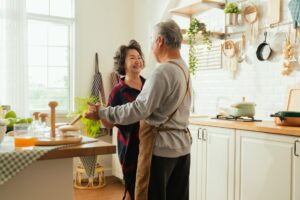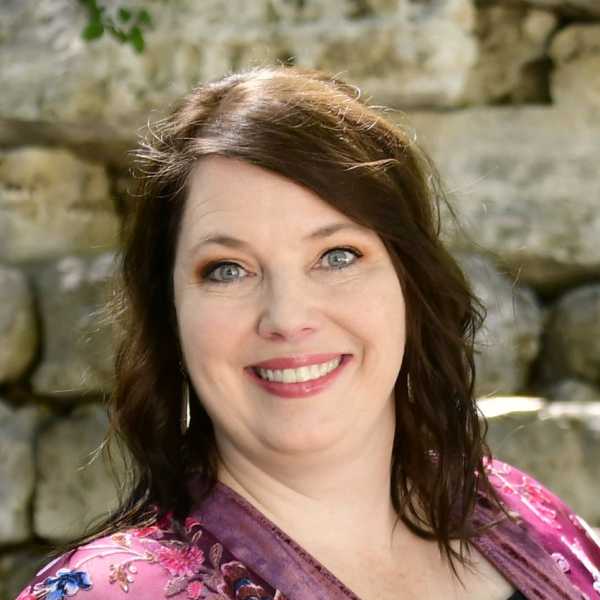In the 1980s sitcom The Golden Girls, a show about the lives of four older women who live together in Miami, there’s one episode called “Who’s face is this, anyway?” that has some interesting dialogue about growing old and losing your charms.
 Blanche Devereaux, the character that defines herself by her sex appeal and looks faces something of a crisis after she attends a reunion with her sorority sisters. It turns out the years haven’t been kind to Blanche, or at least she doesn’t seem to think so. Her sorority sisters all got some work done and rendered Blanche unremarkable. She didn’t take this well as she was used to being the center of attention.
Blanche Devereaux, the character that defines herself by her sex appeal and looks faces something of a crisis after she attends a reunion with her sorority sisters. It turns out the years haven’t been kind to Blanche, or at least she doesn’t seem to think so. Her sorority sisters all got some work done and rendered Blanche unremarkable. She didn’t take this well as she was used to being the center of attention.
At a plastic surgeon’s office where she intends to have her eyes, nose, and breasts enhanced, Blanche’s doctor tells her that while there are many good reasons to have that kind of work done, there are also a lot of bad ones. In response, Blanche, in a rare moment of vulnerability, says that all her life she’s relied on her beauty, but now that beauty seems to be fading and she’s scared because she’s never had to do without it.
While not everyone can relate to Blanche’s struggle with her fragile beauty, as one gets older, some things get lost along the way – independence, good health, beauty, mental acuity, friends and other loved ones who pass away, and so much more. As one gets older, there are things that one depended on that one begins to lose, and that can be scary.
Getting older entails a certain amount of loss, but it’s possible to flourish as you get older. Our culture shies away from old age, urging us to do everything we can to keep it at bay, whether through medical interventions such as plastic surgery or by encouraging older people to try to turn the clock back and act like they are twenty-somethings. Being older has its perks, and rather than rejecting the fact of getting older, embracing what old age brings can lead to a happier life.
For example, getting older typically means less stress. According to the annual Stress in America report from the American Psychological Association, compared to their younger counterparts, baby boomers and older adults report experiencing less stress.
 Of course, that doesn’t mean stress goes away entirely for older people, as worries about one’s health and financial security still feature as a source of stress, but the APA says that nine out of ten older adults report that they’re doing enough to manage it and keep it under control.
Of course, that doesn’t mean stress goes away entirely for older people, as worries about one’s health and financial security still feature as a source of stress, but the APA says that nine out of ten older adults report that they’re doing enough to manage it and keep it under control.
Getting over getting old, or how to flourish in old age
Facing old age with a positive attitude may require a mind shift, and it often entails struggling against the prevailing cultural current that doesn’t appear to appreciate getting old. If you’re in your forties and younger, no doubt you’ve already begun experiencing some of the effects of getting older, and you’ve had to face challenges such as a declining metabolism. There are a few things that you can do to ease your passage into your fifties and later.
Staying or getting fit can make a big difference as you age. This will look different for each person, but do some exercise that will get your heart pumping and your body moving. Some exercises like running and walking will add a bit of wear and tear to your joints, and that is why many people prefer workouts like swimming that have a low impact on joints but work great for cardio and overall fitness.
The main idea is that you strengthen your body so that as you age, you won’t decline as quickly. Staying fit also includes mental fitness, since getting older may mean a decline in your mental faculties such as memory. Keep your brain engaged through activities such as crossword puzzles, and stay the impact of cognitive decline through continual learning.
 Studies have shown that you can help prevent cognitive decline and reduce the risk of dementia with some basic good health habits such as eating a Mediterranean-style diet, having a good social network and support system, staying physically active, getting enough sleep, not smoking, and limiting alcohol to no more than one drink a day.
Studies have shown that you can help prevent cognitive decline and reduce the risk of dementia with some basic good health habits such as eating a Mediterranean-style diet, having a good social network and support system, staying physically active, getting enough sleep, not smoking, and limiting alcohol to no more than one drink a day.
If you are already in your fifties and older, the above still holds. Talk with your doctor about what kinds of exercise are appropriate for you so that you get the most out of it. The following may also be helpful to remember:
Remember, getting old is natural
Our hearts desire eternity and permanence, but the reality is that our bodies are wasting away and are perishable.
Thank the Lord that through Jesus Christ our bodies that are perishable and weak are going to be raised into new life as imperishable, immortal bodies that can inherit God’s eternal Kingdom (1 Corinthians 15). Embracing the limits of our existence allows us to enjoy the season of life we find ourselves in, and that includes old age.
Find your path to getting old
Your body and circumstances aren’t the same as everyone else’s. There are some videos on social media of sixty and seventy-year-olds doing amazing workouts with people in their twenties.
This is not everyone’s story, nor is being hunched over and sedentary for the last few decades of life. Challenge yourself to be the best you can be, but recognize that your limits won’t look like anyone else’s. How you experience old age is your own journey.
Embrace what old age brings
Getting older will mean several things, including retirement, having more time available to grow as a person, spending time with family, investing in hobbies, continuing to serve God, and much else.
Other physiological changes you may experience include the real possibility that you’ll become more of a morning person when you hit your sixties, while some ailments such as migraines become less of an issue. As you get older, crystallized intelligence, which means you’re good at using what you know, will help increase your levels of confidence and give you tools you can pass on to others.
Getting older also enables you to grow in empathy toward others. You also may experience positive sexual changes. While hormonal changes may mean finding hair growing in unwelcome places, a study of women forty and over has indicated that sex is better and sexual satisfaction improved with age.
 It’s okay to accept help
It’s okay to accept help
As you get older, some things may get harder, like setting up a new phone or computer or getting around. It’s okay to accept help or even to seek help from family and friends. It means overcoming one’s pride, but better to be humble and get things done than get stuck or endanger yourself.
Don’t quit your day job
While it seems attractive, unless you have a fun second career waiting for you, going for early retirement might not be the best thing for your health. Having good friends and a good marriage are essential to living longer. A study called the Longevity Project found that people who work hard at a job that they enjoy live longer.
Finding help for dealing with getting older
Getting older isn’t easy, as you have changes in your body, mind, and circumstances to deal with. As you get older, you may also lose more of your friends and colleagues through illness or the simple march of time.
Getting older also means coming to terms with a new sense of yourself, and it’s never easy to reconfigure your identity as you find yourself in a different stage of life. Some challenges such as dementia will require interventions to prepare you and your family for the changes you may undergo.
One place to get help is through counseling. Individual or group counseling can help you overcome the challenges specific to getting older. In that space, you can learn coping skills while unpacking the emotions, thoughts, and experiences that accompany getting older. Your counselor will be a sympathetic, non-judgmental ear, and they can form part of your support network that will help you navigate getting older successfully.
If you are feeling afraid or overwhelmed by the prospect and reality of getting older, don’t hesitate to reach out to a trained professional who can help you embrace this season of life and continue to flourish in it.
“Birthday Party”, Courtesy of Getty Images, Unsplash.com, Unsplash+ License; “Dessert”, Courtesy of Getty Images, Unsplash.com, Unsplash+ License; “Dancing in the Kitchen”, Courtesy of Getty Images, Unsplash.com, Unsplash+ License; “Happy Couple”, Courtesy of Marisa Howenstine, Unsplash.com, CC0 License
-
Amanda Lindsey: Author
As your therapist, I will be there for you and listen to you and your concerns. When we go through challenges in life, we can feel alone. Sometimes it helps just to have someone with whom you can talk things through. With kindness and empathy, I will...
-
Kate Motaung: Curator
Kate Motaung is the Senior Writer, Editor, and Content Manager for a multi-state company. She is the author of several books including Letters to Grief, 101 Prayers for Comfort in Difficult Times, and A Place to Land: A Story of Longing and Belonging...
DISCLAIMER: THIS ARTICLE DOES NOT PROVIDE MEDICAL ADVICE
Articles are intended for informational purposes only and do not constitute medical advice; the content is not intended to be a substitute for professional medical advice, diagnosis, or treatment. All opinions expressed by authors and quoted sources are their own and do not necessarily reflect the opinions of the editors, publishers or editorial boards of Stone Oak Christian Counseling. This website does not recommend or endorse any specific tests, physicians, products, procedures, opinions, or other information that may be mentioned on the Site. Reliance on any information provided by this website is solely at your own risk.





